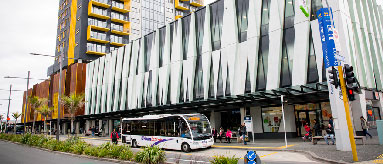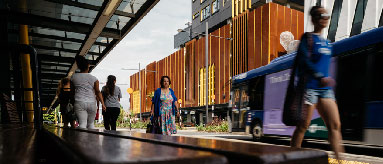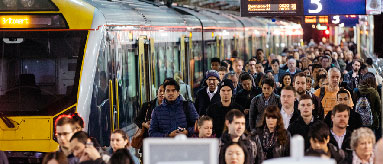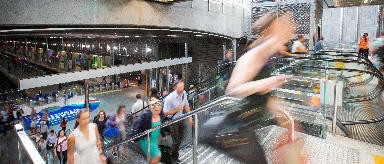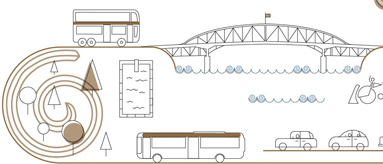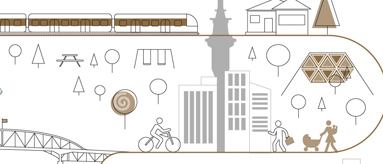To make our transport system more sustainable it needs to:
- be more resilient to a broad range of local and global changes
- minimise negative impacts on the climate and environment.
Building a resilient transport system delivers a wide range of benefits, such as:
- improved public health
- better air and water quality
- a fairer and more equitable society
- longer-term social and economic resilience
- a significant contribution to reducing Auckland’s emissions.
Improving the resilience of our transport system in response to potential long or short-term disruption is also crucial. We face several challenges and opportunities in this regard, particularly from a changing climate and biodiversity loss. These include:
- disruptions arising from accidents, damage or incidents on the network
- short and long-term changing weather patterns with:
- extreme weather
- increased rainfall intensity
- extreme heat events
- sea-level rise
- shock events like those caused by pandemics, energy, and fuel disruptions
- continued social, cultural, political, economic and technological changes.
Decisions must be made in a way that reduces the risk of investments being 'caught out' by such changes which can be rapid and sudden.
How this can be done
Our transport system must:
- rapidly decrease emissions by:
- reducing the distance people need to travel
- encouraging the uptake of electric vehicles and micro-mobility,
- prioritising the use of more sustainable modes of transport, such as walking, cycling and public transport
- identify parts of the transport network where disruption would have significant and widespread impacts
- develop appropriate strategies to improve resilience of our transport network
- reduce the harmful pollutants that enter our waterways and atmosphere
- reduce the impact of non-permeable surfaces Ground surfaces, including parking lots and concreted areas, which do not allow rain water to pass through and soak into the ground, increasing the volume of run-off flowing over the ground. on run-off Water flows which result from rain water which is not absorbed by permeable surfaces or that which falls on impermeable surfaces. and the creation of urban heat islands.
To find out more, visit Te Tāruke-ā-Tāwhiri: Auckland's Climate Plan and Auckland’s Transport Emissions Reduction Pathway (TERP).


